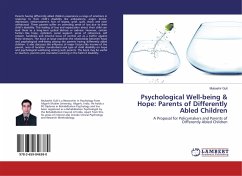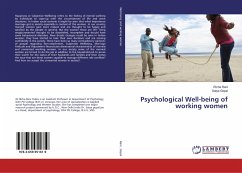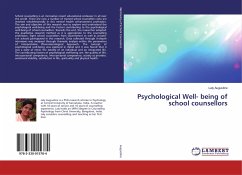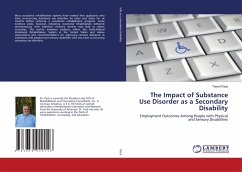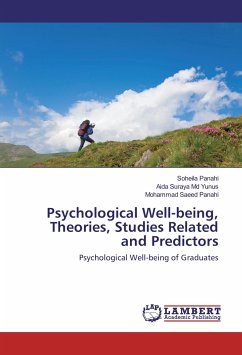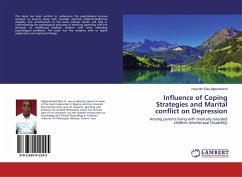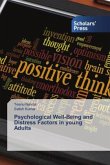Parents having differently abled children experience a range of emotions in response to their child's disability like ambivalence, anger, denial, depression, embarrassment, fear of stigma, grief, guilt, shock and even withdrawal. These parents suffer an unending sense of loss due to their child's disability. This feeling of loss and expectation about their child can lead them to a long-term cyclical distress or sadness. However, certain factors like hope, optimism, social support, sense of coherence, self esteem, hardiness and internal locus of control act as a buffer against these stressors. The book at large examines the relationship between hope and psychological well-being among the parents having differently abled children. It also discusses the influence of major factors like income of the parent, area of location (rural/urban) and type of child disability on hope and psychological well-being among such parents. The book may be useful to teachers, parents and counselors working in the field of disability.

